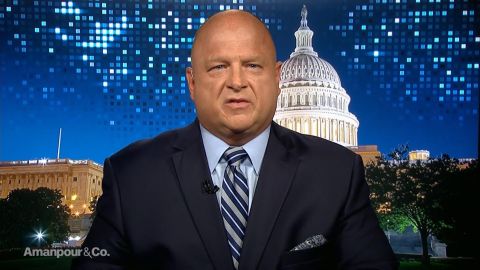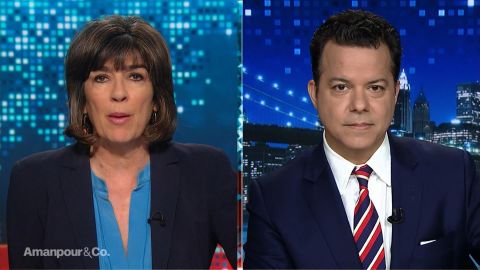Read Transcript EXPAND
CHRISTIANE AMANPOUR: Give us your initial impressions and context for this kind of investigation and this kind of public report.
SEAN WILENTZ, PROFESSOR OF HISTORY, PRINCETON UNIVERSITY: Right. Well, my initial impression is that this was devastating report for the president. Absolutely devastating. Not simply on the question of obstruction, but on so-called collusion as well. It’s not really collusion, it’s about conspiracy. And there’s stuff — with all of the redactions, there is enough information in there to see that there’s something going on there that’s very, very serious.
But to understand it at all, Christiane, I think you do have to think of this historically and to understand it. In fact, what Attorney General Barr was doing this morning and indeed has been doing all long, which is a kind of replay of a very, very old strategy, which goes all the way back to the ’70s. It’s Nixonian. It’s Nixonian strategy of redact, delay, redact, delay, double talk when you have to, and when you absolutely have to, intervene.
AMANPOUR: OK.
WILENTZ: It’s almost a weird replay of what’s going on in 1973.
AMANPOUR: So, give us a specific then of that. Because, obviously, that stands out as one of the most traumatic, if not, the most traumatic of the modern American presidency. What do you mean it’s déjà vu?
WILENTZ: Right. Well, in 1973, if you will remember, there — Nixon’s tapes — President Nixon’s tapes were discovered. It was discovered — it was revealed that he had taped his conversations. And so, there was a big to-and-fro about whether those tapes would be released. Originally, President Nixon offered to — it was called the Stennis Compromise, a deal whereby he would release some of the tapes. When his — when the Special Prosecutor, Archibald Cox, refused that even when ordered — even when the president was ordered by the courts to do so, refused to do that, Nixon had him fired. He was not going to take the redaction. He was fired. And that was the beginning of the — that was the famous Saturday Night Massacre, right.
Then go to 1974 and the same thing happened. Nixon released a bunch of very heavily redacted version of the tapes that was supposed to be the final end of it. This is it. This is it. Well, it wasn’t it. And finally, the special prosecutor, the second one who had replaced Cox, Leon Jaworski, had to go to court and began the very famous case of U.S. v. Nixon in which finally the Supreme Court ordered Nixon to produce the whole tapes. 16 days later, he resigned because the tapes told the whole truth.
What we are seeing is once again the strategy of redaction, delay, redaction, delay. And a lot of double talk, too, which is about collusion, and we can get into that a little bit later on.
About This Episode EXPAND
Christiane Amanpour speaks with John Avlon, David Urban and Sean Wilentz about the Mueller report. Walter Isaacson speaks with Sal Khan about Khan Academy.
LEARN MORE



